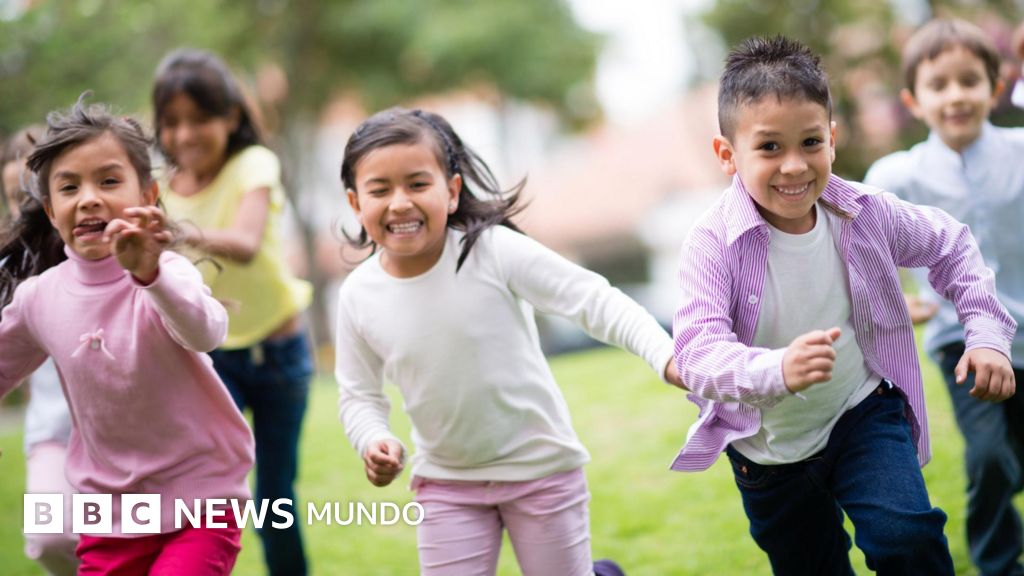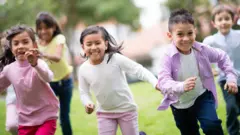

Image source, Getty Images
-
- Author, Joan Tahull Fort
- Author's title, The Conversation*
With the arrival of school holidays, many families and teachers wonder what happens to learning when classes stop. Do you waste your time? Is development stagnate? Is it necessary to continue with academic tasks or activities to “not lose rhythm”?
These questions ignore something fundamental: learning does not stop when the school year ends. Simply change.
During the holidays, far from the academic formal structures, children and young people continue to learn – and much – although more informally, spontaneously and emotionally significantly.
Instead of curricular content, what is cultivated in these periods of “rest” are equally essential skills for life: social skills, autonomy, creativity, emotional management, conflict resolution, time awareness, feeling boredom …
Unstructured time and brain development
In our society, marked by an obsession with productivity and performance, we tend to see free time as a “emptiness” that must be filled.
However, neuroscience and development psychology have been demonstrating that rest, free game and socialization between equals are fundamental for cognitive, social and emotional development in childhood and adolescence.
The holidays allow something that hardly happens in school: unstructured time.
A space without defined objectives, without evaluation or external pressure, where children can explore the world in their own way, follow their curiosity, get bored (boredom also teaches) and find their own ways to solve everyday problems.
What you learn unintentionally

Image source, Getty Images
Next, I list some of the skills and learning that develop naturally during the holidays and are essential for life:
1. Negotiate and live with others. During the school year, interactions are usually mediated by adult standards and figures that regulate behavior. On the other hand, on vacation – especially when there is time shared with brothers, cousins, neighbors or friends – children discover the need to negotiate, agree rules, yield, resist and collaborate. They learn to live together, sometimes with conflicts, but also with reconciliations.
2. Organize time. Without rigid schedules, many children and young people learn to administer their own time: when to get up, how much to dedicate to the game, to rest, to help at home or simply be in their world. This flexibility is key to developing autonomy and personal planning.
There is also the risk of excessive use of electronic devices, which can cause young people to spend more time than necessary in the screens, neglecting other important activities such as rest, physical exercise or social interaction.
When the mobile becomes the center of the daily life of a teenager, it is essential to open spaces for dialogue and reflection. Finding a balance between autonomy and certain retaining frames can help develop a more conscious and healthy use of technology.
3. Explore your interests. Holidays are an opportunity for children to reconnect with what they like. Maybe they spend the afternoon drawing their favorite characters, making legos, leafing through magazines or comics, watching ants in the patio, trying new games with their friends or helping to prepare breakfast with the grandmother. It is a free exploration time, without exams or external pressures. They learn out of curiosity, for pleasure, and because every day they can discover something new in their own way and rhythm.
4. Develop creativity. Free time favors the creation of imaginary worlds, invented stories, spontaneous games or improvised crafts. Who does not remember his childhood, looking at the shapes of the clouds and imagining characters, fantastic animals or scenes that only we could see. It is in those seemingly simple moments – residing, building a cabin or explaining stories – creativity appears.
5. Manage boredom. At first, when organized activities are over, the classic “I bore me” appears. For adults it may sound like a complaint or a sign that something is missing, but in reality boredom is an engine. He teaches children to tolerate the absence of immediate stimuli, to stay with themselves and to activate their own internal resources. At first there may be discomfort, but soon the spark appears: an invented game, a story … Many valuable discoveries, creative ideas and authentic game moments appear after boredom. Giving space to the pause is to let the imagination arise.
6. Connect with your emotional world. Children have more time to feel, think and talk about what happens to them. Physical and mental rest opens a space for emotions that were contained or silenced. Sometimes a quiet afternoon is enough, a conversation without hurry or simply be present for questions, fears, dreams or joys that during the year were in the background. And those who live with them know it: on vacation, children grow more and consolidate knowledge. They consolidate skills and competencies that were, but they still did not manifest.
7. Link with other adults and referents. Not everything goes through school or parents. On vacation, children are related to uncles, grandparents, neighbors, monitors or adults in other roles. These links also teach: they model ways of speaking, acting, solving problems, and offering a diversity of perspectives. These links expand their network of affections and give them a sense of belonging beyond the family nucleus.

Image source, Getty Images
The value of the game and the destructure
Free game is one of the most serious and formative activities of childhood and youth. Not everything must have an academic purpose to be valuable. Playing is, in itself, a deep way of learning. It is in the game where roles are experienced, rules are rehearsed, frustration is managed and creativity is valued.
In addition, the fact that many of these experiences occur outside rigid structures do not make them less valuable; On the contrary, they are complementary. In fact, time destructuring makes the most personalized, more durable and connected learning with the child's emotional reality.
What can families do?
It is not about turning vacations into another parallel school or filling the agenda with formal activities. The ideal is to find a balance between a certain structure (basic routines and clear limits) and some freedom.
Some ideas to accompany are:
• Promote free play moments, even without toys.
• Propose simple home tasks that involve participation and responsibility.
• Talk about what they feel, what interests them, what they dream.
• Leave time for boredom, without filling it right away.
Learn outside the classroom
Holidays are not a learning pause: they are a different scenario, with other rules, where new fundamental forms of knowledge for life appear. Reducing them to a simple “unproductive” time is not seeing everything that is happening in the mind and in the emotional field of children and adolescents.
Surely, the most important lesson is to learn does not always require a classroom in a school. Sometimes, a group of friends, a tree to climb, a conversation, an afternoon with nothing to do … because, as the pedagogue Francesco Tonucci said, “children do not need more duties, they need more vacations, more free time, more game, more game and more street.”
*Joan Tahull Fort is a professor of Sociology of Education at the University of Lleida. This article appeared in The Conversation. You can read the original version here.

Subscribe here To our new newsletter to receive every Friday a selection of our best content of the week.
And remember that you can receive notifications in our app. Download the latest version and act.






